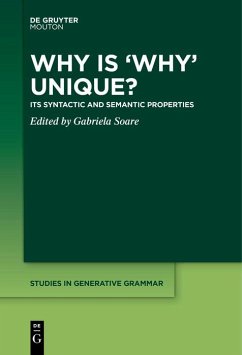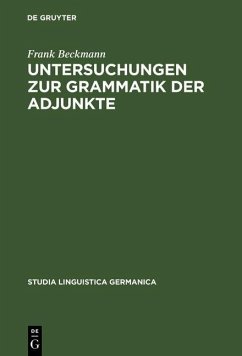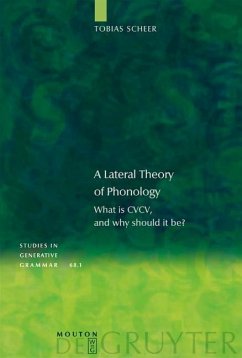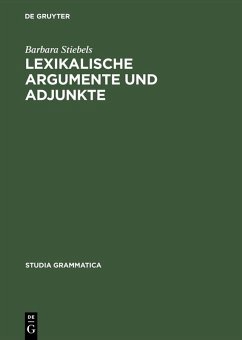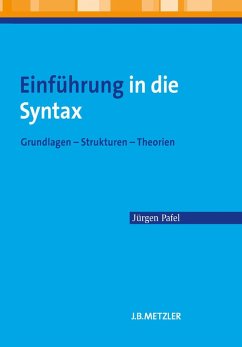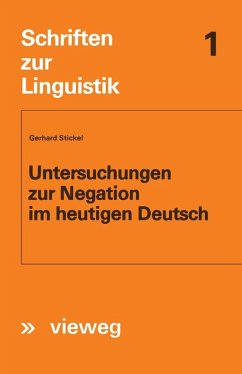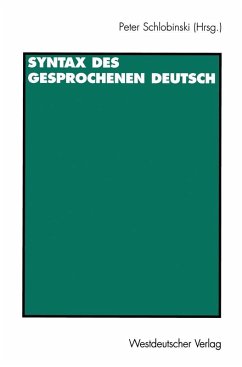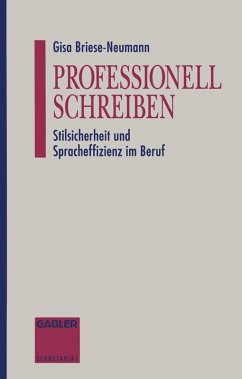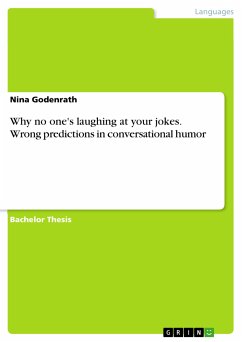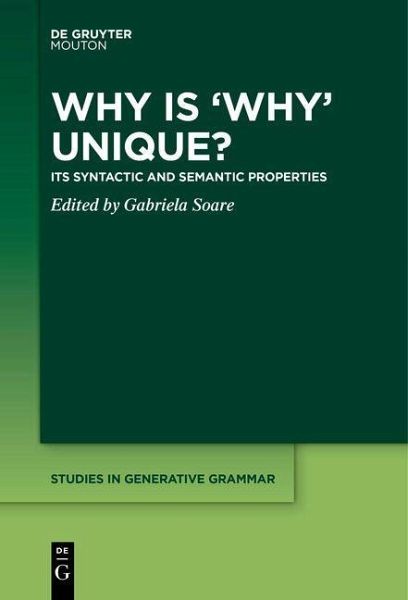
Why is 'Why' Unique? (eBook, PDF)
Its Syntactic and Semantic Properties
Redaktion: Soare, Gabriela

PAYBACK Punkte
56 °P sammeln!
Why is 'Why' Unique? Its Syntactic and Semantic Properties considers the behaviour of this peculiar wh-element across many different languages, including Ewe, Trevisan, Italian, Basque, German, Dutch, Cantonese, Mandarin, English and Hebrew. In ten original chapters, the authors explore various aspects of why-questions, such as the way why interacts with V2 constructions in Basque, with a subject clitic in Trevisan or how its morpho-syntactic make-up determines its merge position in Ewe, to mention but a few. Furthermore, a clear-cut distinction is established between high and low reason adver...
Why is 'Why' Unique? Its Syntactic and Semantic Properties considers the behaviour of this peculiar wh-element across many different languages, including Ewe, Trevisan, Italian, Basque, German, Dutch, Cantonese, Mandarin, English and Hebrew. In ten original chapters, the authors explore various aspects of why-questions, such as the way why interacts with V2 constructions in Basque, with a subject clitic in Trevisan or how its morpho-syntactic make-up determines its merge position in Ewe, to mention but a few. Furthermore, a clear-cut distinction is established between high and low reason adverbials which are subsequently examined in why-stripping environments in Dutch.
Beyond why proper, the book explores a special class of wh-expressions in some in-situ languages which give rise to unexpected why-construals with a touch of whining force. The objective is to explain the unusual syntactic position of these wh-expressions as well as their association with peculiar pragmatics. The questions are addressed for Cantonese: are what-initial sentences genuine questions? To what extent are Cantonese what-initial sentences similar to how-initial sentences in Mandarin? Beside these what-as-why questions, a special class of rhetorical questions, the doubly-marked interrogatives in Hebrew, come under scrutiny.
Why is 'why' unique also concerns the interface with prosody and several experimental studies investigate precisely this aspect.
Beyond why proper, the book explores a special class of wh-expressions in some in-situ languages which give rise to unexpected why-construals with a touch of whining force. The objective is to explain the unusual syntactic position of these wh-expressions as well as their association with peculiar pragmatics. The questions are addressed for Cantonese: are what-initial sentences genuine questions? To what extent are Cantonese what-initial sentences similar to how-initial sentences in Mandarin? Beside these what-as-why questions, a special class of rhetorical questions, the doubly-marked interrogatives in Hebrew, come under scrutiny.
Why is 'why' unique also concerns the interface with prosody and several experimental studies investigate precisely this aspect.
Dieser Download kann aus rechtlichen Gründen nur mit Rechnungsadresse in A, B, BG, CY, CZ, D, DK, EW, E, FIN, F, GR, HR, H, IRL, I, LT, L, LR, M, NL, PL, P, R, S, SLO, SK ausgeliefert werden.




